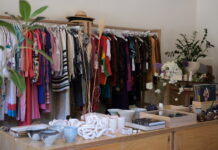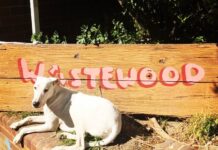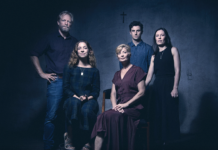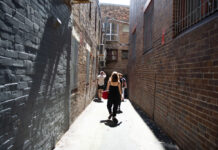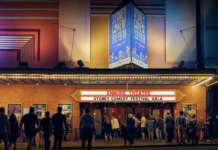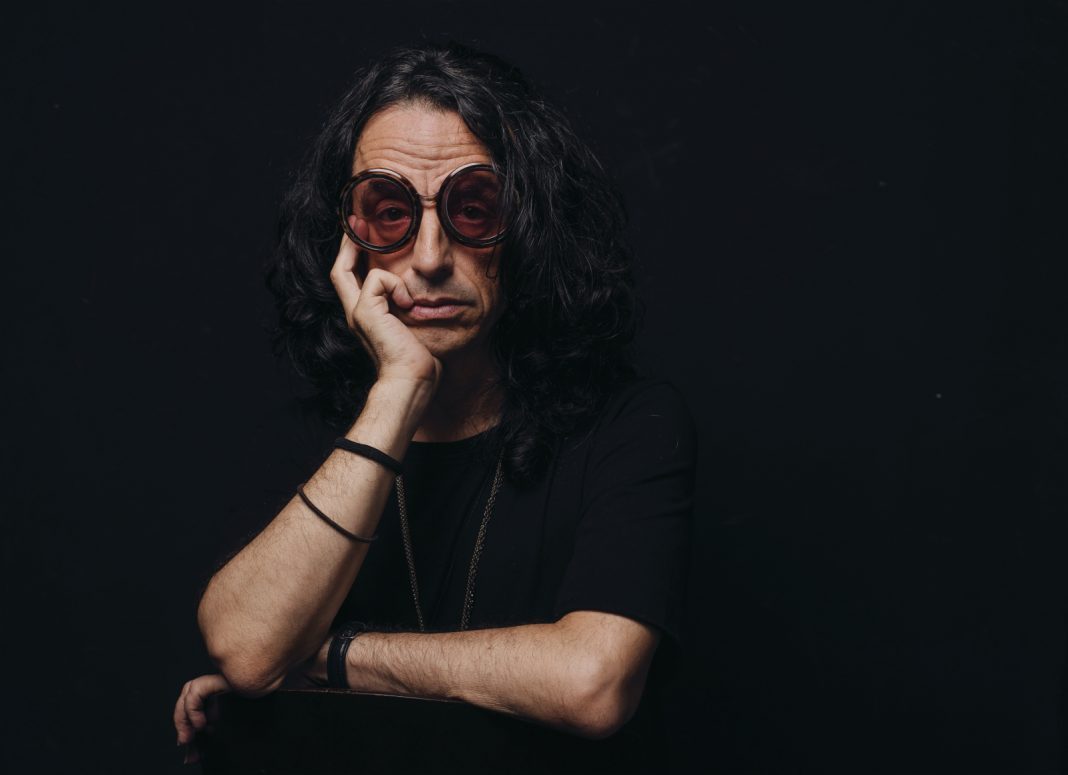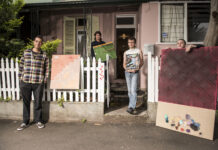The actor and cabaret artist Paul Capsis is Maltese and Greek, but he’s also as Surry Hills as you can get.
Last year Paul Capsis was in Malta, performing his play Angela’s Kitchen at the Malta Arts Festival. He was even interviewed on Maltese television on a chat show, speaking fluently in Maltese.
Originally performed at the Griffin Theatre in 2010, the play is about Capsis’ grandmother Angela and her migration from Malta to Sydney in 1948.
It is an individual migration story which embraces universal themes, and has struck a chord with audiences everywhere.
And while many people who saw the performance identified strongly with the story, many would have failed to realise that the work has another theme: Surry Hills.
As Capsis puts it, Surry Hills is his “DNA.”
“I’ve worked this suburb all over. Every nook and cranny,” he says.
“I can tell you when the trees were planted, when the homosexuals moved in and when the wogs moved out.”
Surry Hills was where Capsis was born around half a century ago, at the old Crown Street Women’s Hospital. Once the largest maternity hospital in NSW, it is now part of the Adina development.
“Most of my family were born there,” says Capsis.
“I think they’ve left one section of the original 20th century section as part of the Adina, just for posterity.”
The Capsis family built a life in Surry Hills in the 1960s and 1970s, and the young Paul attended most of its schools, which are still here today. Crown Street, Bourke Street, St Peters in Riley Street, and then onto Cleveland Street Boys High.
“I have a charmed memory of how I grew up,” he says.
“I just remember it being very multi-cultural. There was a lot of everything here, but it was rough and working class. A lot of factories and light industry.
“There were double decker buses. No cafes. A lot of the shops, like the delicatessen and Malaxos tailors were run by people whose kids I went to school with.”
Essentially, he stayed because he wanted to be close to his grandmother, Angela. He didn’t leave home until his 20s because “you didn’t do that unless you got married and had kids.”
But when he did move out, he stayed in the area to be close to her.
He came out as Surry Hills was changing, and remembers “all these men living together.”
“They had flannel shirts and handlebar moustaches, and they were painting their houses salmon pink which was a change from the bright green and yellow the migrants liked,” says Capsis.
“And all the migrants started to move out in a big mass migration. The prices they were getting for their terraces – they could get a four bedroom house in the suburbs with a yard and a garage.”
Capsis’ grandmother Angela, however, wasn’t going anywhere. The family were suggesting she sell up and move to Maroubra where she could have a view of the ocean, but she wasn’t having any of it.
“She just wanted to stay here,” says Capsis.
“She just wanted her bingo, her church and her Maltese friends. She wasn’t going to Maroubra.”
And that is why Capsis stayed too. Although there was a time when he lived the other side of Cleveland Street in Redfern, but that hardly counts. Even the old Redfern Mall is the Surry Hills shopping centre these days.
On the day Urban Village interviewed Capsis, he had been at Botany at his grandmother’s grave, marking the anniversary of her passing.
After just coming back from Malta, where he had performed the play which bears her name, it is a reminder of how important family and historical roots are to an artist who has forged an international career, all from a Surry Hills terrace.
“It was incredible the response the play had in Malta,” says Capsis.
“A lot of Maltese have had family emigrate to Australia. I originally made the work for an Australian audience to talk about one migration story, but people there were very moved because so many of them have family and connections here, so they could also relate to it.”
The fact that the play was produced in Malta is a testament to the strength of Capsis’ international connections. A long time collaborator of Australian director Barrie Kosky and his productions in Vienna, it was there that Capsis met Airan Berg, the Malta Festival’s international artistic director, who invited him to perform in Valletta.
“He called me up and said, ‘I believe you have a play about your Maltese grandmother, well I want it for the Festival,’” explains Capsis.
“The theme for 2017 was migration, so it was a perfect fit. And so many Maltese people emigrated here to Australia.”
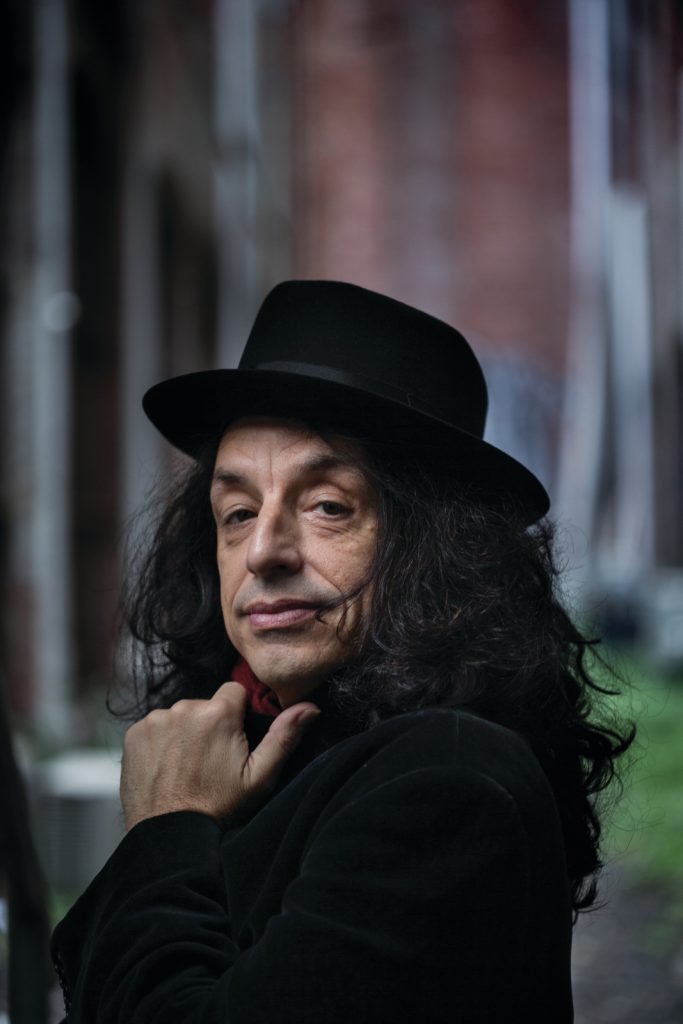
Angela’s Kitchen, however, was a play which might not have existed. As Capsis explains it, the prompting and urging of friend Julian Meyrick, from Flinders University, was the catalyst for creating the work.
“After my grandmother died he sent me a handwritten card suggesting the idea for the play,” says Capsis.
“He had met my grandmother, but he was saying it just wasn’t a personal exposition, it was a story about all Australians.
“I was doing Rocky Horror down in Melbourne and the time and I just said ‘no.’ I wasn’t ready, it was too painful, but he just left it with me and said if I wanted to just talk about it, I should give him a call.”
Ultimately, Angela’s Kitchen – with Meyrick directing – won Best New Australian Work at the 12 Annual Helpmann Awards, vindicating the decision to tackle the subject but also serving as a – positive – catalyst for Capsis.
“What happened with that play is that I came out as a wog,” he says.
“People knew me as an actor, a singer and as this exotic cabaret performer. But with that play it was intensely personal and was the most satisfying work I think I’ve done.”
For the future, Capsis is continuing to invest his time in work created by others, until such time as he feels ready to return to the personal.
Much of the work Capsis does these days is outside of Sydney, and also outside of Surry Hills. But in terms of a place to live Capsis, like his grandmother Angela, isn’t going anywhere. And besides, his mother is still here.
“But is has changed so very much,” says Capsis of his home.
“It always had this wonderful community feeling. Naughty, but exciting. But I worry when I see all the shops closed up, some of those shops and businesses were local icons.
“I think it is greener and prettier than it used to be. I love the trees and I love developments like the library, and the fact we have been protected and don’t have skyscrapers.
“I’m grateful for that. And the fact that the historical element is still here, in what is a sophisticated Urban Village.”

